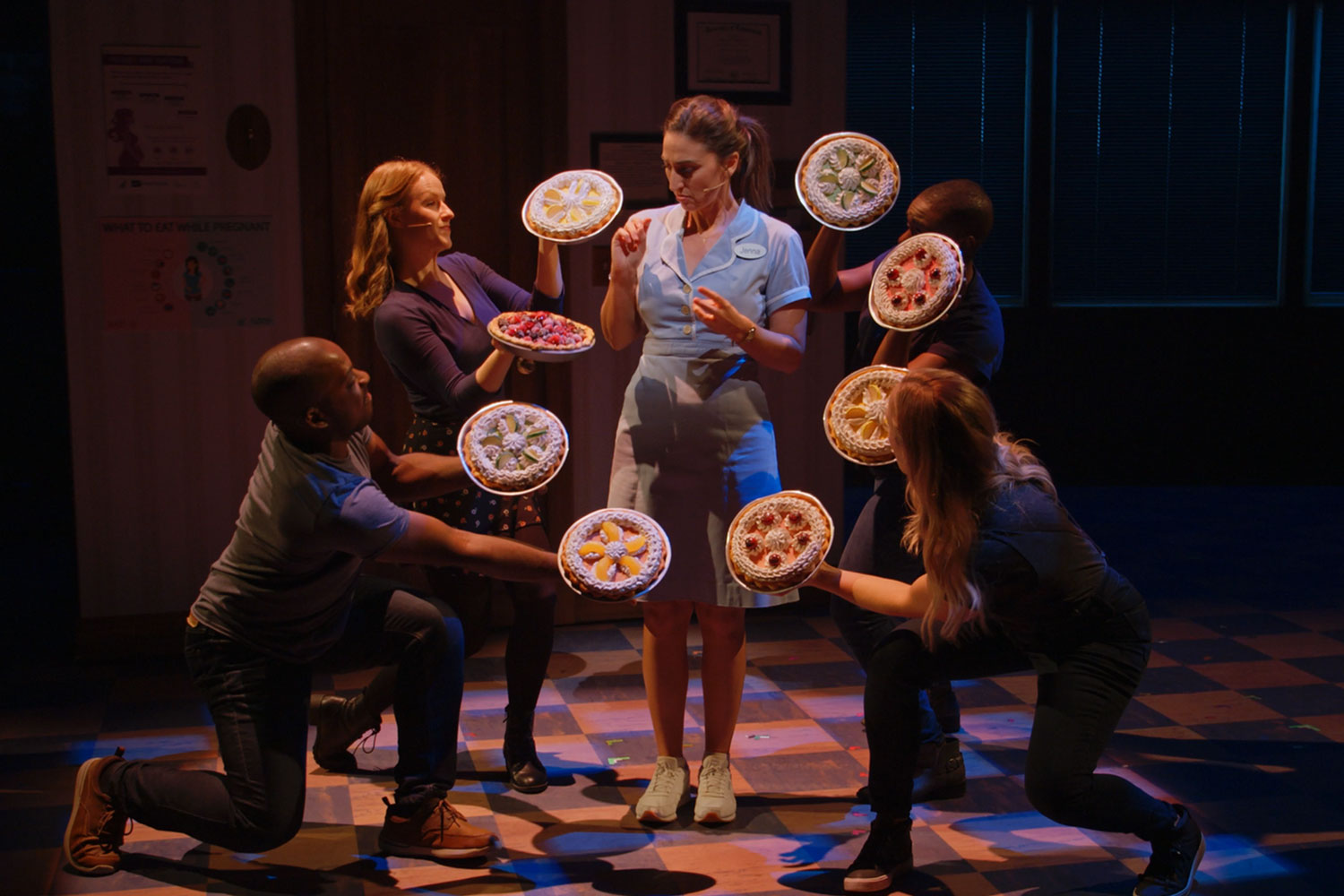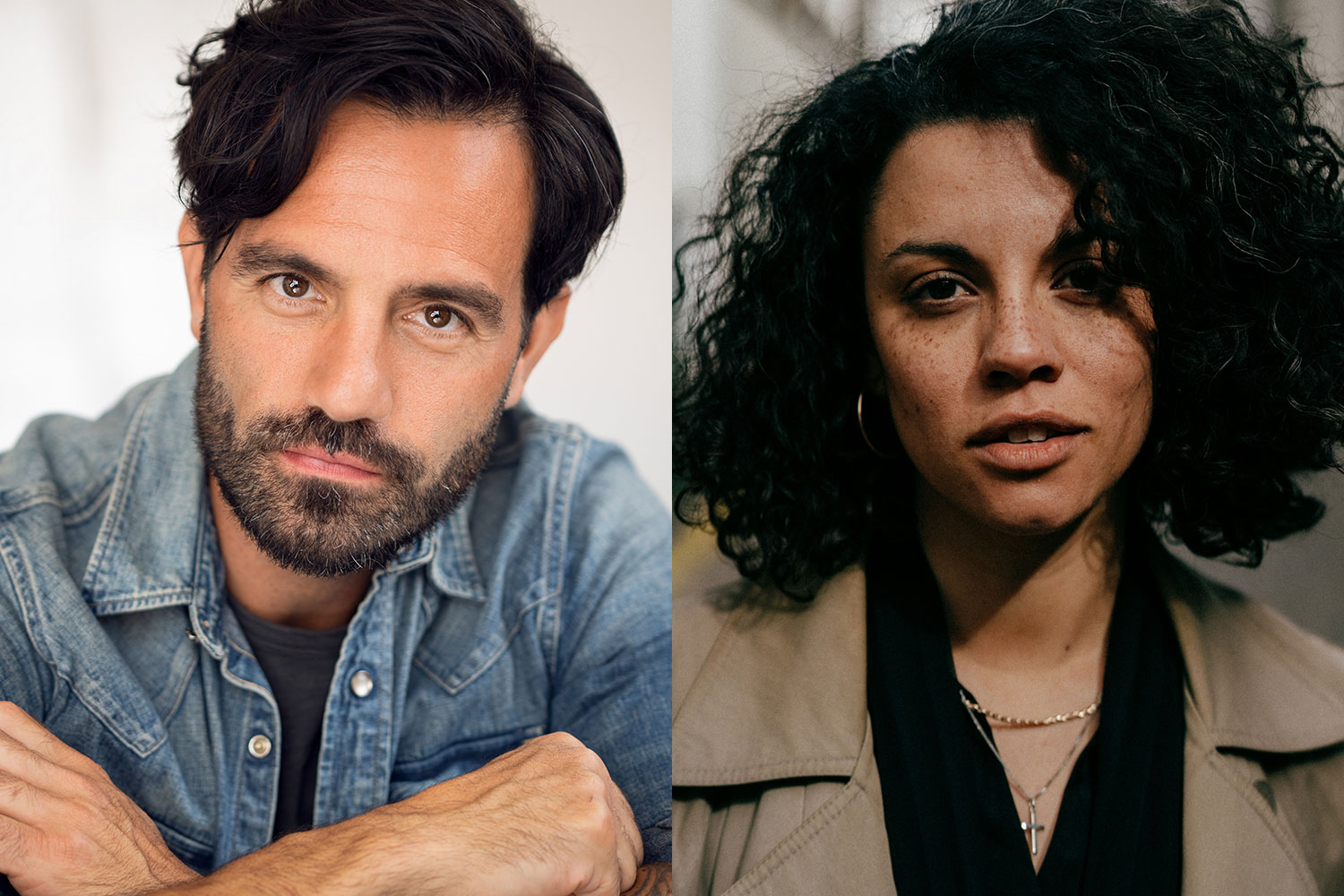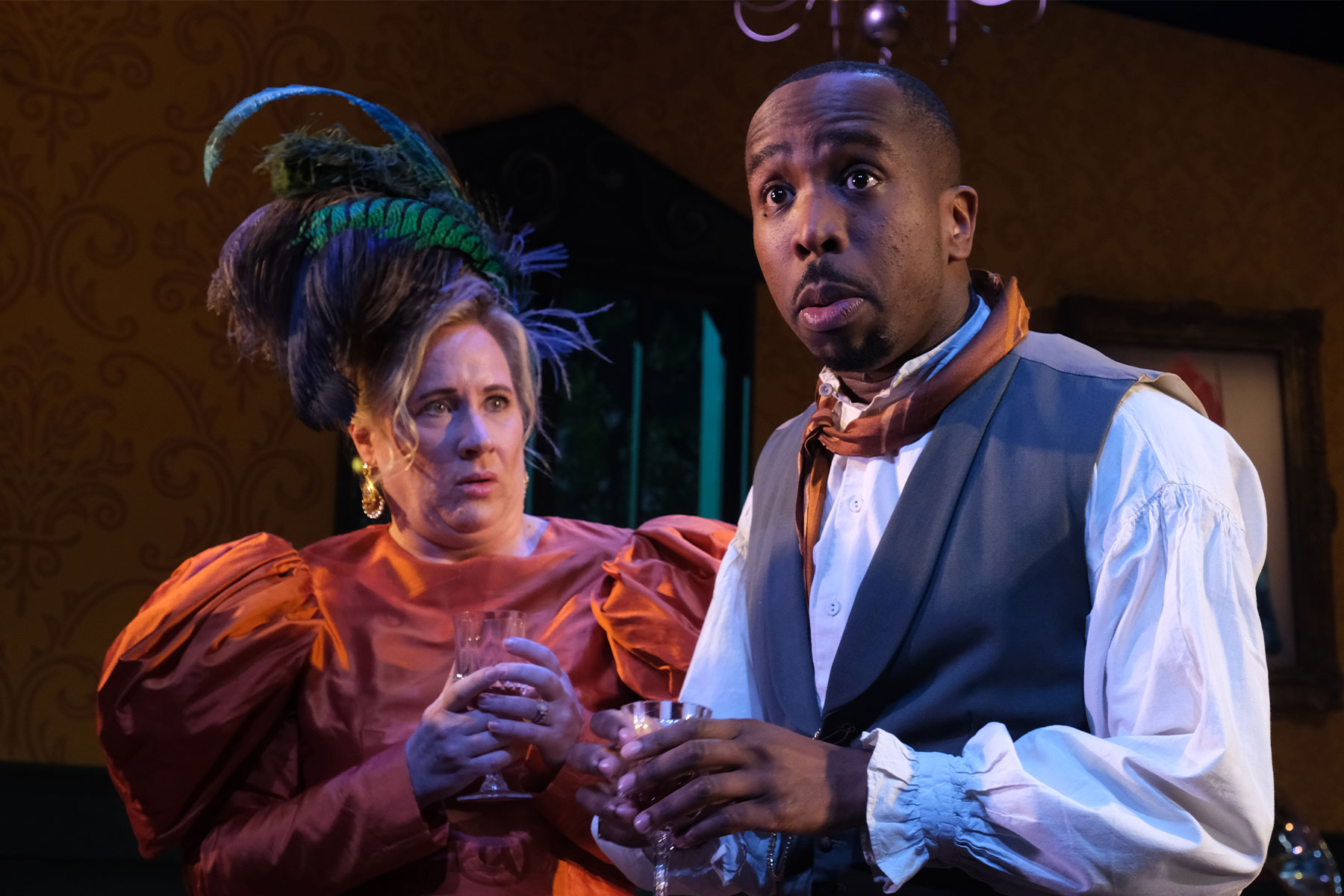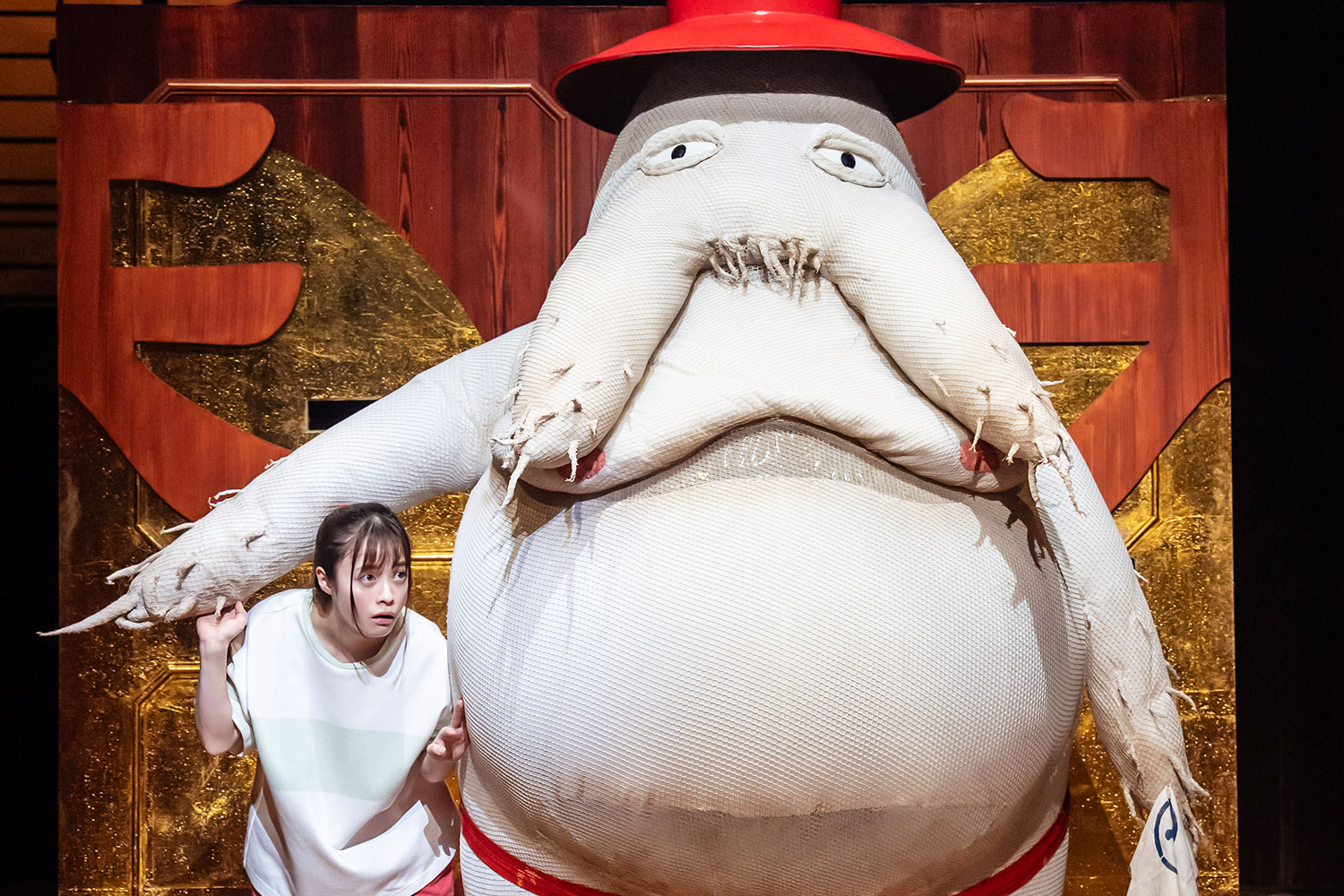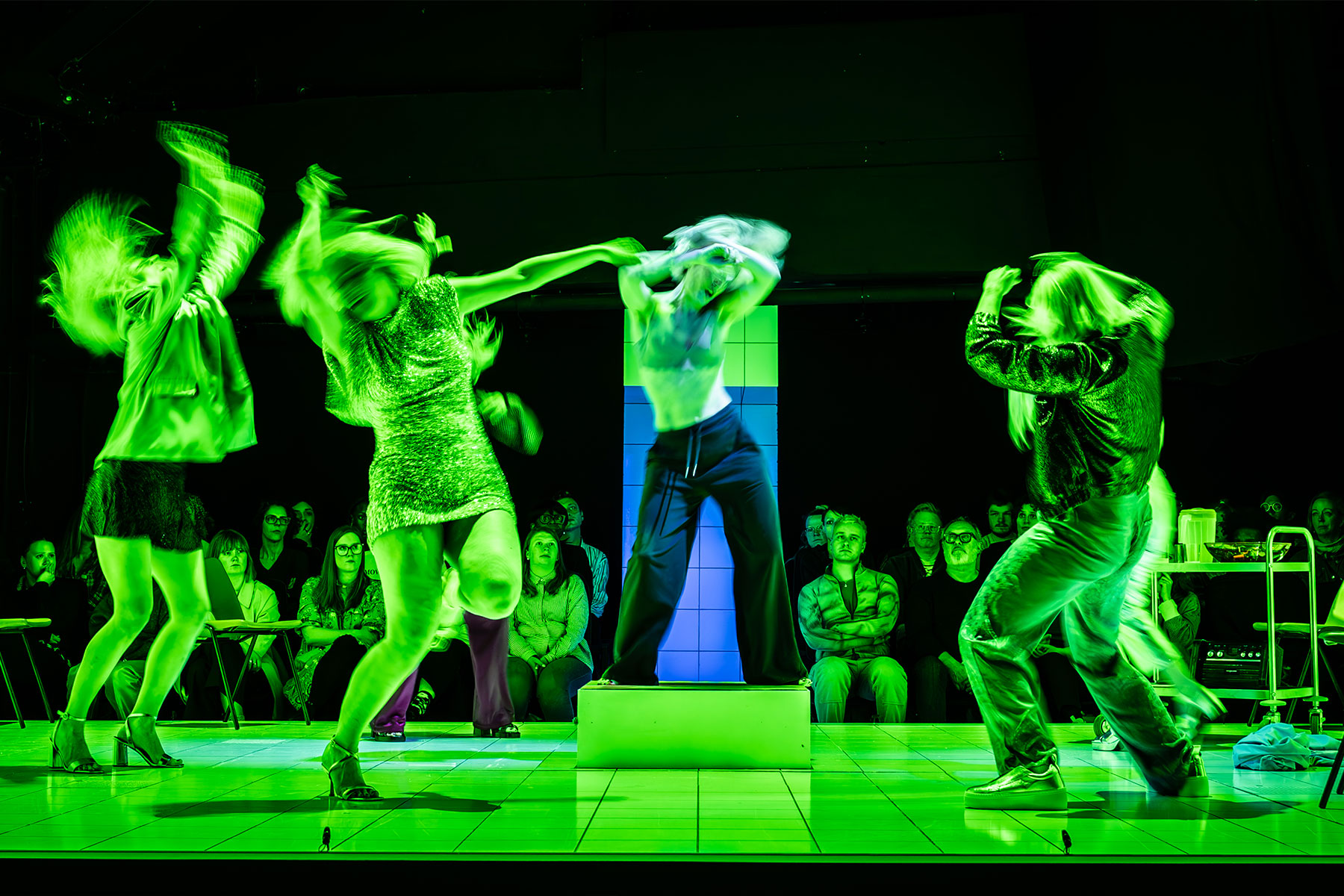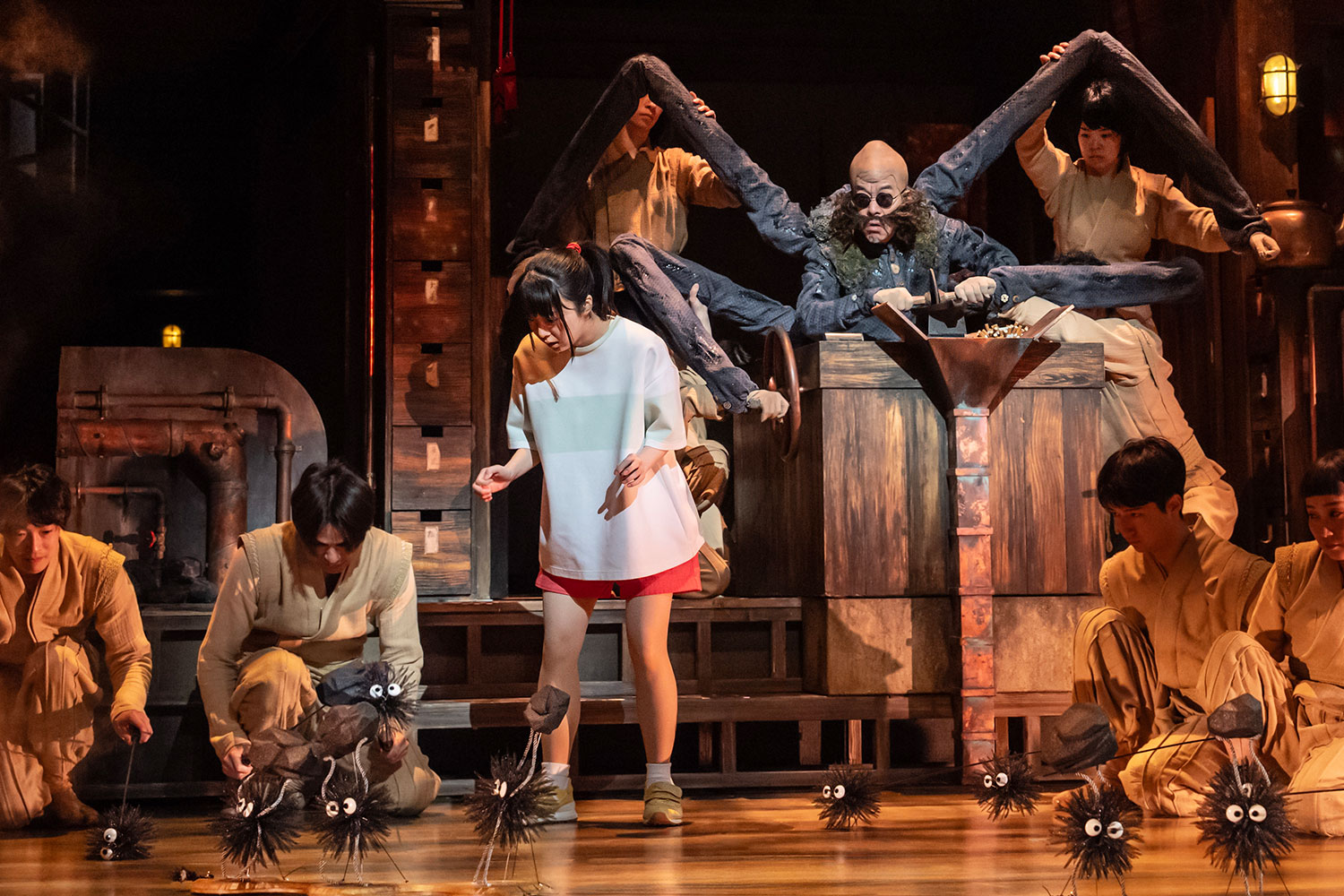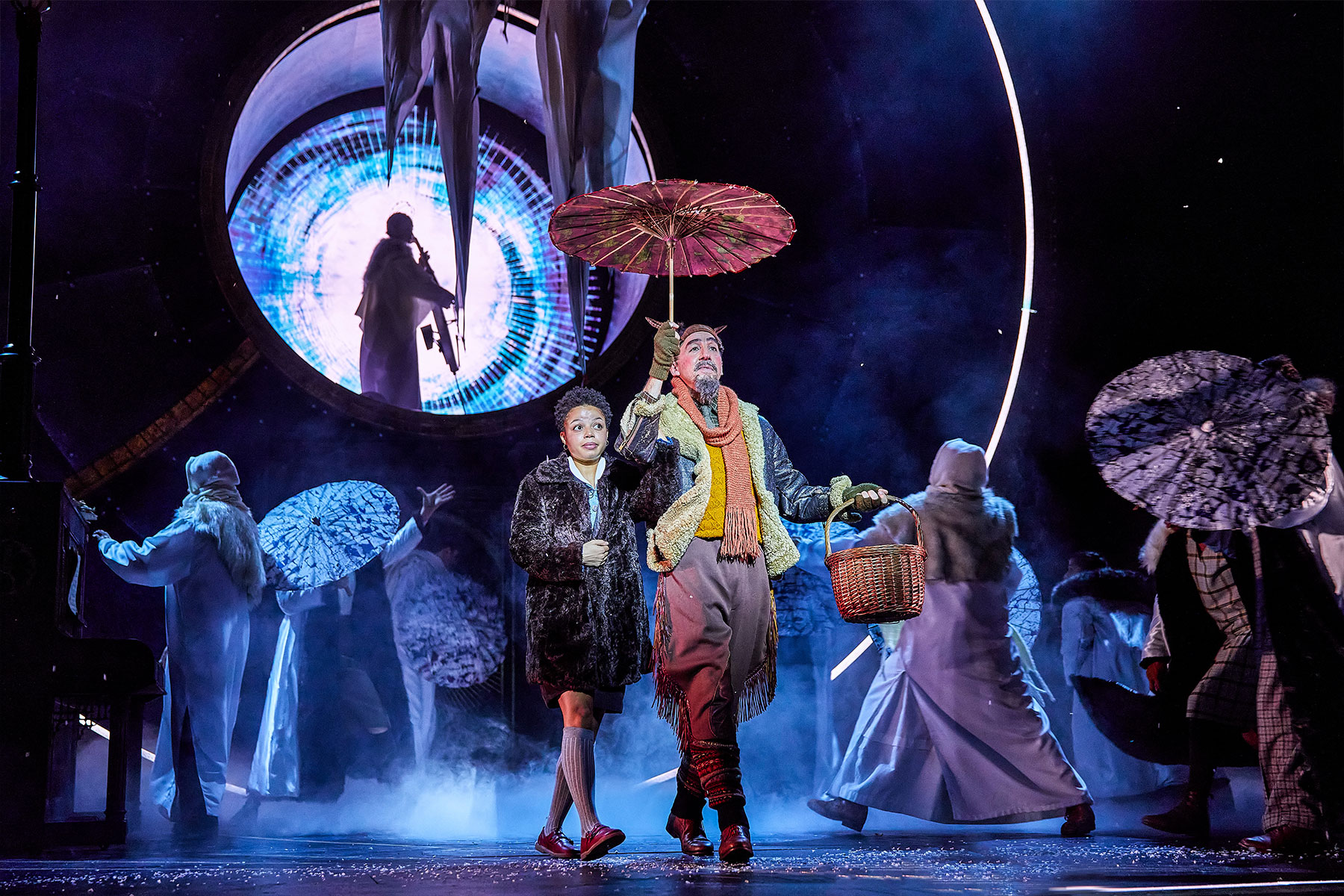Love and Other Acts of Violence at Donmar Warehouse – review
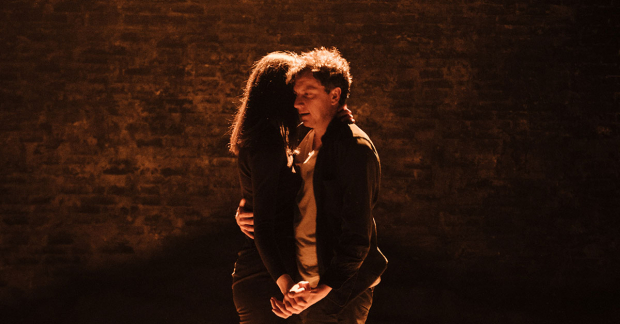
© Helen Murray
Cordelia Lynn is a young playwright with a distinctive voice. She's serious, and poetic and comes at problems and ideas from unusual angles. It's impossible to fault the ambition or intent of Love and Other Acts of Violence, which reopens the redeveloped Donmar with a blast of fresh air.
Directed by Elayce Ismail, with astonishing and stylish fluency, it starts off being one thing and ends up being entirely another. It opens with a couple, described as Him and Her and played by Tom Mothersdale and Abigail Weinstock, meeting at a party. He leans over her as she bends back like a hairpin, his sheer energy making her nervous as he expounds his anti-capitalist view of the world.
It's funny, and clever, and played with verve. Over the next 90 minutes we watch their relationship unfold through passion, dancing, debate, and in and out of violence. At the same time, we understand that the world they live in has collapsed into a fascist dystopia, where she loses her job as a physicist because her research doesn't conform to the "nationwide educative effort". The same social change makes him, a poet who has been teaching history, join the resistance, where he ends up killing a man.
All the while, Lynn hints at an awareness of something bigger; a historical trend that dooms this relationship from the start. The shocking physical argument that breaks them apart comes when she calls him "Polak" and he screams back "Jewess"; there's a story about a wooden ram that she has lost; a discovery that their ancestors came from Lemberg in Poland where there was a vicious pogrom in 1918.
Since she is Jewish and he is the son of a Polish immigrant, this bodes ill. In the final 20-minute epilogue, Lynn unleashes the full weight and horror of that shared but entirely different history. The actors switch roles to embody their forbears, with Richard Katz also appearing as Her's great-great grandfather.
All this is wonderfully achieved on a set by Basia Bińkowska that encompasses both the abstract and the detailed. But the run to that final epilogue overwhelms the slim structure. There are simultaneously too many ideas about nationalism, history, and anti-Semitism floating around and too few about their lives as a couple.
There are so many interesting themes lurking here: how do you protect yourself when the world around you becomes a place of hate? Do you hide or do you flee? Do you build for the future or are you always doomed by a past that keeps repeating itself? Lynn throws out of a whirlwind of questions but frustratingly shies away from grappling with answers.
Oddly, it is Her who has the least to say to explain herself. Perhaps that is a historical inevitability, but it unbalances the work and means that Weinstock, whose professional debut this is, has to spend a lot of the time looking wide-eyed and unbelieving as Mothersdale spouts a torrent of words.
She has terrific presence and obvious talent, but he steals the show: his quicksilver switches of mood, his wit, his intensity, are absolutely compelling. As an actor Mothersdale generally has an ability to appear entirely different in every part; here he shape-shifts in front of our eyes as aspects of his character come to the fore.
Even if I have reservations about the play, I wouldn't have missed that – nor returning to the newly-energised Donmar which now physically lets the light into its spaces that it has always shone on its stage.



